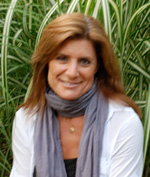Originally published in Crain’s Chicago Business

April 3, 2015

A new biography of Michelle Obama by Northwestern University associate professor Peter Slevin, a former reporter at the Washington Post, details Obama’s early years growing up in a working-class family on the mostly segregated South Side of Chicago.
“Michelle Obama: A Life” follows her to Princeton and Harvard universities, and back to Chicago, where she pursues a successful law career and mentors a bright young lawyer named Barack Obama. The story traces her outreach work in Chicago’s South Side communities, her marriage to Barack Obama and the birth of their two daughters. The book also recounts what she contributed—and what she gave up—to help her husband win the 2008 presidential election, as well as the passions she has pursued during her time in the White House.
The unauthorized biography is published by Knopf and hits bookstores April 7.
Slevin is on leave from Northwestern during this academic year and will return in the fall. Crain’s caught up with him before the official book launch.
Crain’s: What inspired you to write about Michelle Obama?
Slevin:I wrote extensively about Michelle during Barack Obama’s first campaign for the presidency. She’s a force. She had a very impressive 20-year career working on the South Side of Chicago trying to make a difference in people’s lives quite apart from Barack’s career. While she’s been in the White House, she’s had a great deal to say and accomplished a lot. I thought that warranted a real biography.
Do you think you captured an authentic picture of the Chicago native who ended up as the first black first lady in the White House?
I hope so. I think it’s significant that her voice carries throughout the book. I had the great fortune to read hundreds of thousands of words that Michelle has spoken in speeches, interviews and many obscure ones dating back many years that no one really ever looked at. No one has really tried to connect the dots before.
Is there something particular about growing up on the South Side in the 1960s and 1970s that played a unique role in shaping Michelle Obama?
Very much so. Understanding Chicago is central to understanding Michelle Obama. And she was born in 1964, the year the Civil Rights Act was passed. Michelle grew up seeing how pernicious racial prejudice could be. She also grew up with opportunities that her parents could hardly have imagined.
How did that sort of upbringing influence her professional choices?
Her 20-year career in Chicago and her White House projects each reflect an understanding of inequality and an effort to improve opportunities, especially for disadvantaged Americans. It’s her effort to “unstack the deck.”
What was different about Michelle Obama that led her on a path to Ivy League schools and the professional successes that followed?
Michelle talks about how she had the good fortune to grow up with tremendous support from her family and how much they valued education. She was very disciplined and worked hard. She often got up before dawn at their apartment in South Shore to study while it was quiet.
She’s also very competitive. She learned about Princeton through her older brother Craig and said, “If he can get in, I can get in.” All her friends talk about how competitive she is, and Barack jokes about it, too. They all describe her as overprepared in everything she does. It even carries over to board games and sports.
How did Michelle Obama contribute to her husband’s political journey to the White House?
Michelle is not a fan of politics and never has been, but there’s no doubt she is a huge asset to Barack’s political career. She’s grounded, she thinks about how policies connect to real people. She’s a shrewd judge of character. Michelle’s friends describe her as the most strategic person they’ve ever met.

How did Michelle handle setting aside her own formidable career aspirations to focus on her husband’s political pursuits and her young children?
It cannot have been easy for her to give up her career to be the candidate’s wife and to be first lady. But she always found a way to pursue issues and interests that she cared about. One of the fascinating things to watch after they leave the White House in 2017 is what Michelle will do once her life is again hers to live on her own terms.
Have you ever met the first lady?
I interviewed her twice during the 2008 presidential campaign. Following her to nine or 10 states over the years, I’ve been struck by her remarkable ability to connect with people, with a comment or a hug. She’s also really, really funny.
When you think about Michelle’s time in the national spotlight, what is most striking to you?
Michelle is broadly popular. She’s more popular than her husband, in fact. But before I wrote the book, I did not fully grasp the amount of vitriol—and I mean real hatred—that she endures. The Internet comments, the Photoshopped images, the racist “jokes,” some of them shared by well-known politicians who have later apologized. It’s awful and it continues.
Did you get access to anyone close to Michelle for the book?
Early in the project, I dropped in on the Englewood synagogue of her cousin Capers Funnye, a rabbi. He helped me and then connected me with Michelle’s uncle, Nomenee Robinson, who introduced me to his brother Andrew Robinson.
What surprised you most about researching Michelle for your book?
She had one close relative who was chiefly influential in integrating Chicago department stores. She was responsible for hiring hundreds of African Americans. She had another relative who sued Northwestern University for racial discrimination in the 1940s. She had an uncle who graduated from Harvard Business School and I found a photograph of him in the New York Times with Jackie Kennedy in India when he was in the Peace Corps.

